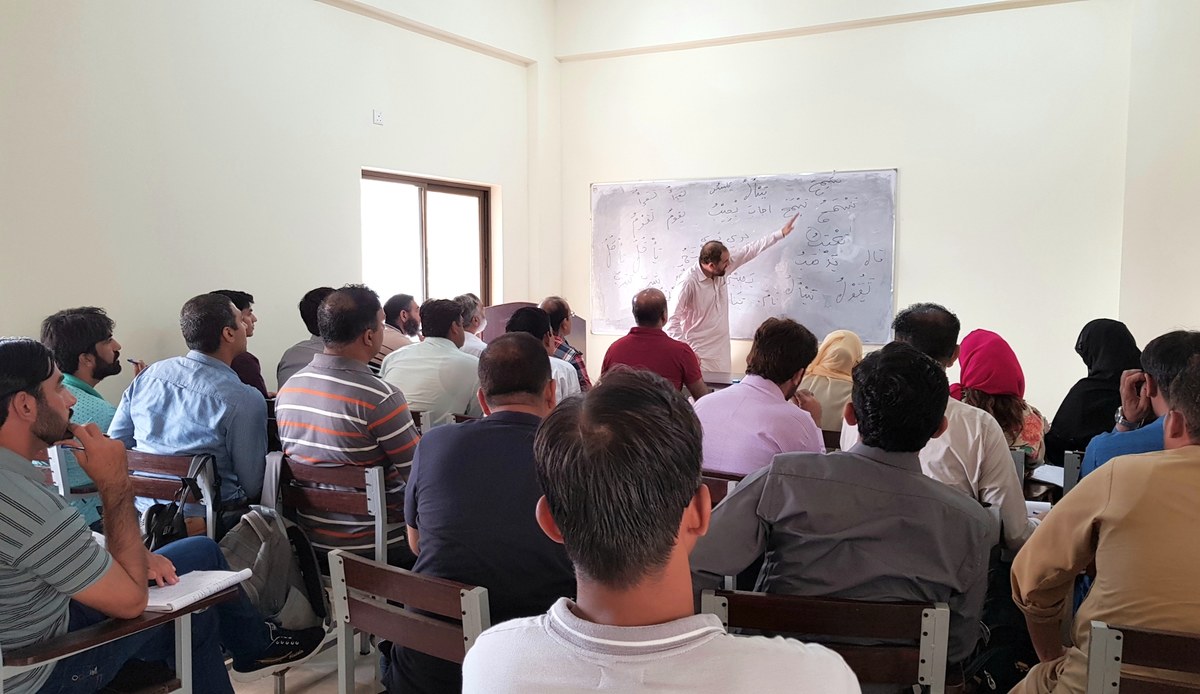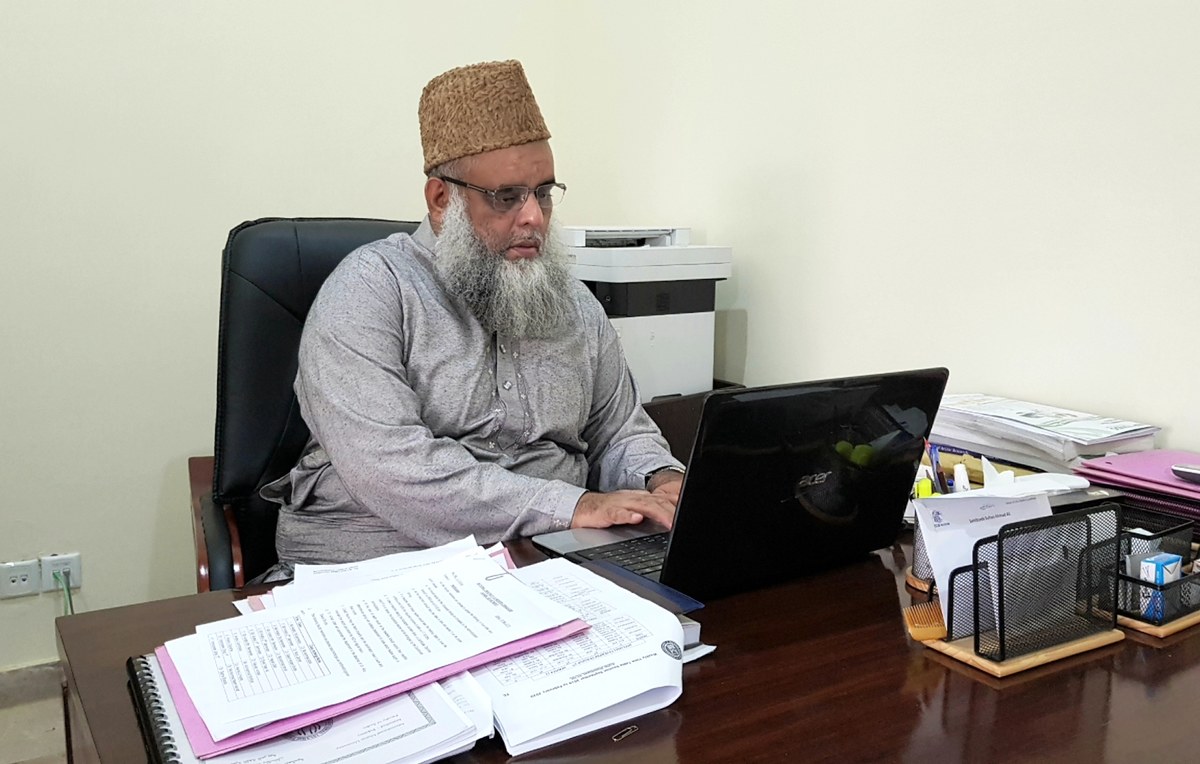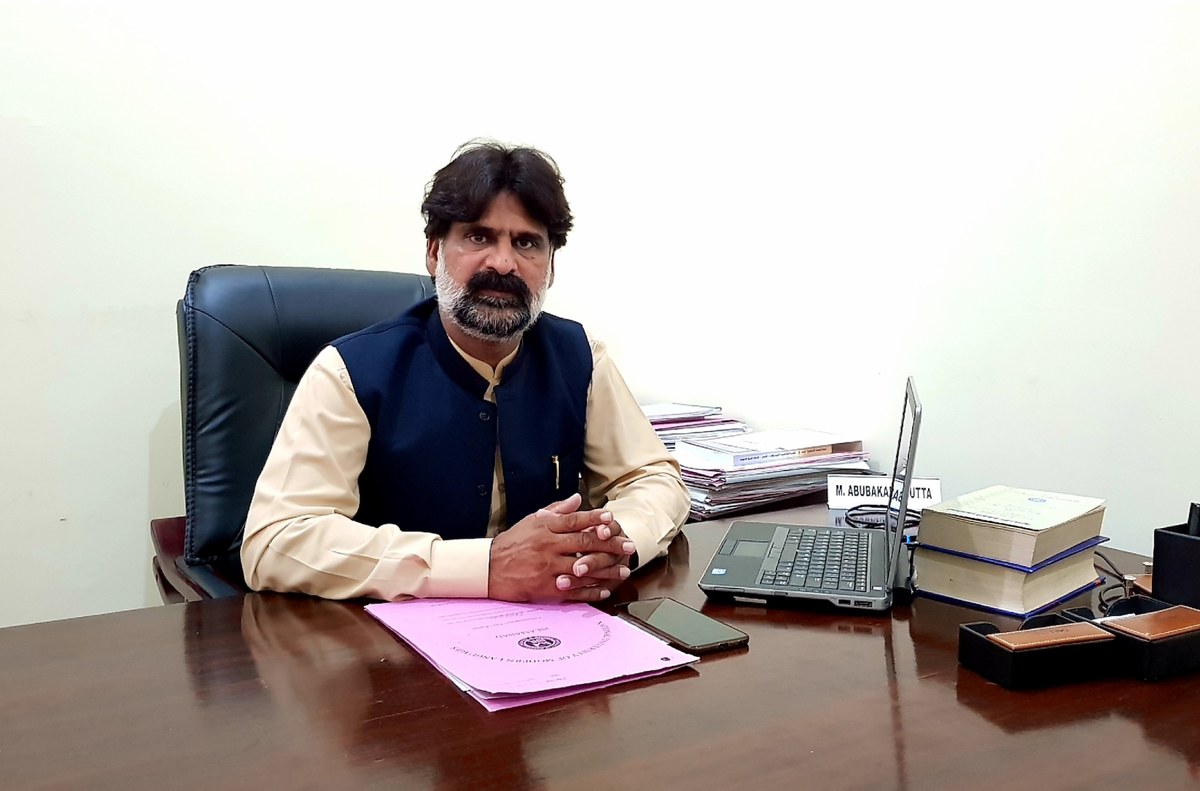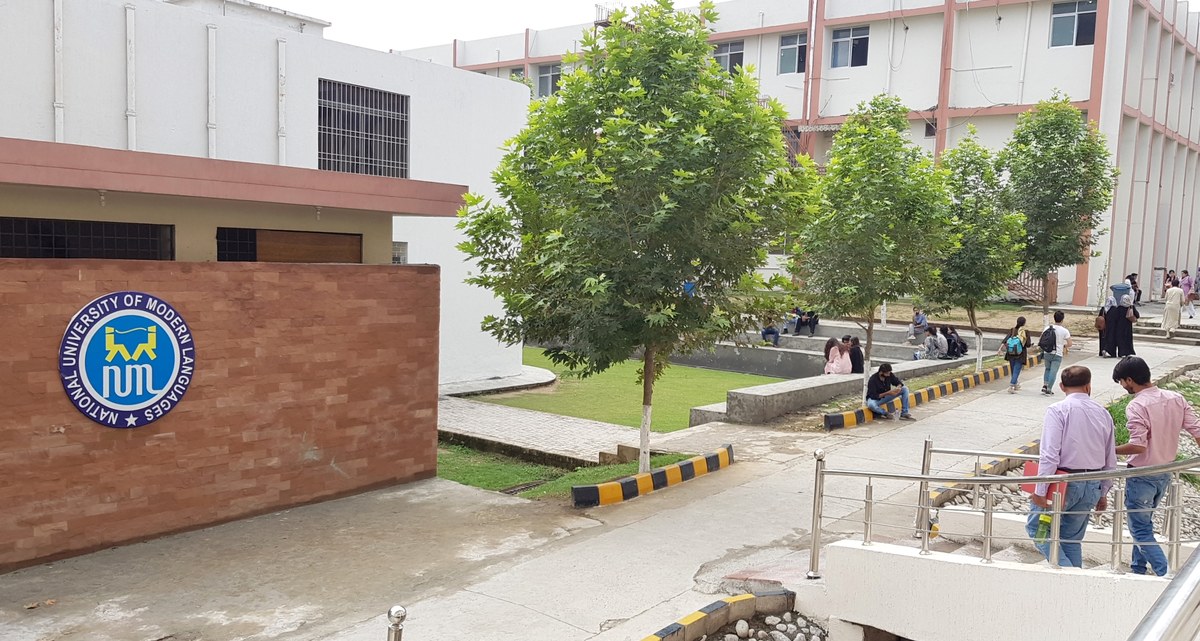ISLAMABAD: Arabic is deeply revered in Pakistan for its religious significance, though it is not spoken or understood in the country. However, a bunch of students can be seen at the Department of Arabic at the National University of Modern Languages (NUML) who are passionately devoting their time and energy to master the subject.
“Arabic is the language of heaven,” 21-year-old Zohina Shabbir said while explaining what compelled her to learn the language. “The Qur’an was revealed in this language, making it extremely special for us.”
Shabbir also described Arabic as a “very comprehensive and interesting” medium of communication.

The Department of Arabic at National University of Modern Languages in Islamabad was established in 1973. One of the oldest language facilities in the country, it offers multiple programs ranging from 6-month short courses to doctorate in Arabic. Picture taken on September 19, 2019. (AN Photo by Sana Jamal)
It is not surprising that it has traditionally been learned to fulfill one’s religious obligations in Pakistan. A large number of educated Pakistani can read Arabic since their national language, Urdu, uses the same script.
While Shabbir and some of her friends are learning the language to improve their understanding of Islam, many among the 180 students enrolled in the department are doing it to secure better employment opportunities.
“Most of them become Arabic teachers after completing their course or degree,” informed Dr. Kafait Ullah Hamdani, head of the Arabic language department at NUML. “Some of our students have found jobs at foreign missions. Others are working as interpreters or white-collar workers in the Middle East.”

Dr Kafait Ullah Hamdani, head of Arabic language department at NUML, calls for educational and cultural exchange programs between NUML and the Arab world. Such programs were halted after 9/11. Picture taken on September 19, 2019. (AN Photo by Sana Jamal)
Established in 1973, NUML’s Arabic department is one of the oldest that offers multiple programs that range from 6-month short courses to doctorate in Arabic.
“It is a matter of great pride for us that our armed forces personnel serving in the Arab world have completed their language courses from NUML,” he said. Most of what is taught at the department is standard Arabic, also known as Fusha.
Besides NUML and International Islamic University (IIUI), there are a number of institutions, such as the Multan-based Wifaq Ul Madaris Al Arabia that enrolled about 377,575 students in 2019.
In recent years, NUML’s Arabic department has also witnessed an interesting trend.
“Almost 70 percent of students currently enrolled in the master’s program are Chinese,” said Dr. Kafait.
He believes this owes to the $60 billion China-Pakistan Economic Corridor (CPEC) that promises to change the region’s economic geography and may give Beijing direct access to Middle Eastern markets.

Dr Abu Bakar Bhutta, assistant professor at NUML, says the Arabic department lacks opportunities and incentives for students and teachers that are available to university departments. (AN Photo by Sana Jamal)
“This trend is an example for Pakistanis how should understand how language proficiency in Arabic can enhance our trade and business ties with the Arab world,” he added. “The importance of Arabic, which is spoken by roughly 400 million people, is also growing due to the rising economic and political importance of the Gulf region.”
Almost a block away from the department, however, one can see Chinese, Korean and German language centers that are abuzz with students. Compared to them, the Arabic section looks rather quiet.
According to one faculty member, this can be explained on the basis of people’s passion to go to Europe or China for better employment opportunities. Besides, there are better scholarship facilities available for students proficient at those languages.
“This is something the Arabic department is missing. To stimulate interest, the government should create better opportunities and incentives for both students and teachers,” said Dr. Abu Bakar, who has been teaching at the facility for the last 19 years.

Most students at NUML’s Arabic department say they are learning the language for better employment opportunities. However, there are several others who are learning it for better understanding of religion. (AN photo by Sana Jamal)
Another key factor for declining admissions in the department, he added, was the compulsion of language certificate by some countries, such as South Korea. Arab states, he noted, did not have such requirements.
“Basic Arabic skills that can be covered in a month would benefit both Pakistani job seekers and Middle Eastern companies,” he said.
NUML has conducted seminars and arranged cultural activities in collaboration with the Saudi embassy since 2016. “One of the most fruitful of these activities was a teacher training program in 2018 which was conducted by professors from Saudi Arabia and Egypt,” Dr. Abu Bakar said, adding that such exchange programs, which came to a halt after September 11, 2001, were quite helpful in promoting the language.
















